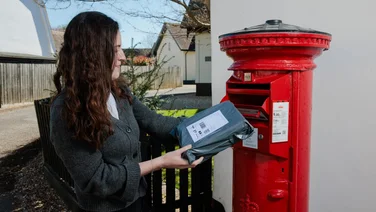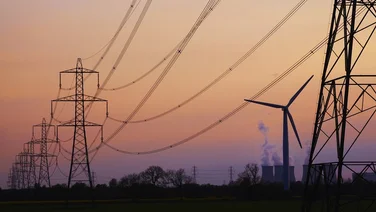- The platform, created by Snugg, enables businesses to reward customers for reducing carbon emissions
- Snugg Carbon Cashback is available to select partners
- It’s the first platform to track and validate home carbon savings via smart meters

Snugg, a Scottish startup company specialising in improving home energy efficiencies, has announced a beta launch of a carbon cashback app that lets businesses reward customers for cutting carbon emissions.
The platform has been developed with government DESNZ (Green Home Finance Accelerator) funding; the company described it as the first platform to track and validate home carbon savings via smart meters.
Households account for 21% of the UK’s carbon emissions, according to George Wilson, carbon market lead, Snugg, and businesses are seeking ways to help their customers reduce their carbon footprint.
Snugg Carbon Cashback is designed to help with this and is available to select partners.
Wilson said the initial testing phase of the platform is almost complete, with more than 90% of participants expressing interest in signing up.
When homeowners install heat pumps or other efficiency measures, their verified savings become sellable carbon credits through the Voluntary Carbon Market.
Wilson added that carbon credits monetise verified emissions reductions, allowing companies to offset their emissions and giving homeowners the chance to earn money at the same time as going green.
Carbon Cashback is launching in beta to select partners, with wider release later this year. Interested businesses should contact Snugg at snugg.com/carbon-cashback.
How does the Carbon Cashback platform work?
- Homeowners discover Carbon Cashback through Snugg’s partner businesses
- Customers connect their smart meter to establish their energy baseline
- Homeowners notify Snugg when they make energy efficiency improvements
- Snugg monitors carbon savings through smart meter data
- Homeowners receive annual payments based on their verified carbon savings
Carbon reductions are tracked using smart meter data and independently audited using Verra carbon credit methodology, which is a non-profit that accounts for 72% of global carbon credit issuances.
Wilson explained: “Carbon Cashback represents an important step forward in incentivising home energy efficiency improvements by tackling the biggest barrier homeowners face – cost.
“By offering financial incentives, we believe this innovative approach will result in many more homeowners upgrading their homes.”

Get free solar panel quotes
Answer a few quick questions, and our trusted installers will send you bespoke solar panel quotes – for free.
What are the benefits for businesses and homeowners?
For homeowners who utilise the platform could benefit from the following:
- Earn up to £2,000 in total over a 10-year period, with the option to extend
- Payments based on verified carbon reductions
- Support available to identify suitable home improvements
There’s also benefits for businesses who partner with Snugg, including:
- Offer customers a unique sustainability-focused proposition
- Reward customers financially for reducing emissions
- Access valuable energy consumption data
- Accelerate and track the reduction of Scope 3 emissions
- Strengthen relationships with environmentally conscious customers
“For businesses, it’s an opportunity to differentiate their offering, while supporting customers on their sustainability journey and use valuable data insights to help meet their net zero objectives,” said Wilson.
“For the first time, homeowners can easily participate in and benefit from the Voluntary Carbon Market.”
How Snugg will support net zero and homeowners’ pockets
The UK needs to invest an estimated £250bn to decarbonise its homes – a crucial step toward meeting national net zero targets.
The Voluntary Carbon Market is expected to contribute 5-10% of this total capital cost by providing financial incentives for homeowners to make sustainable improvements.
Importantly, Wilson said, Carbon Cashback addresses the ‘Spark Gap’, the price difference between electricity and gas and a significant hurdle when it comes to decarbonising domestic heating.
“When homeowners adopt green technology, like heat pumps, switching from a gas system often doesn’t see a significant reduction in energy bills due to the price difference between electricity and gas,” he said.
“By offsetting higher electricity costs, our platform makes green technology financially viable and helps accelerate the UK’s path to net zero.”
Carbon Cashback also aims to address concerns that policies, like the Scottish Heat in Buildings Bill would financially burden homeowners.
“By providing major cash benefits, our platform helps ensure sustainable home improvements become a financially attractive proposition,” Wilson said.







